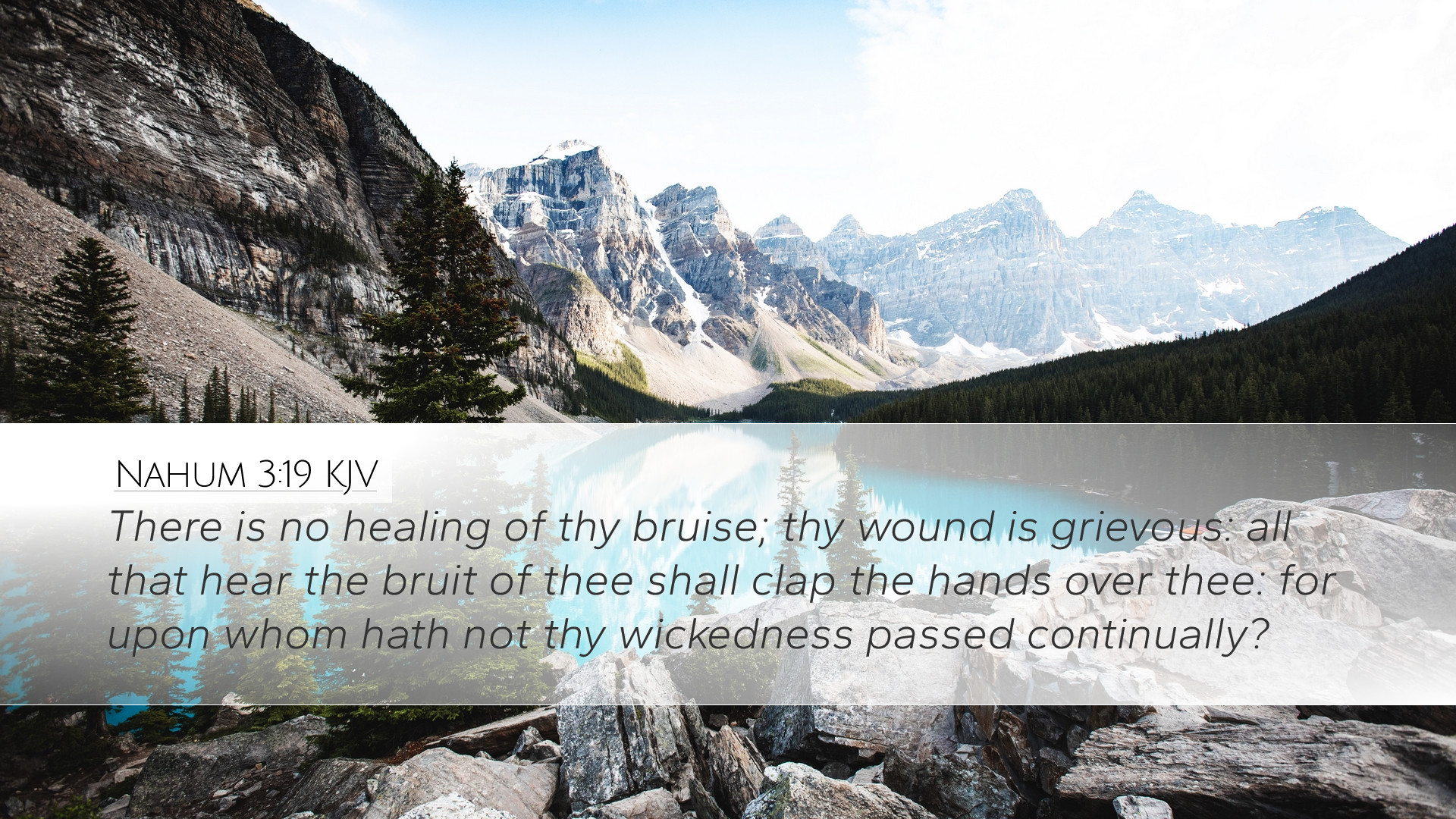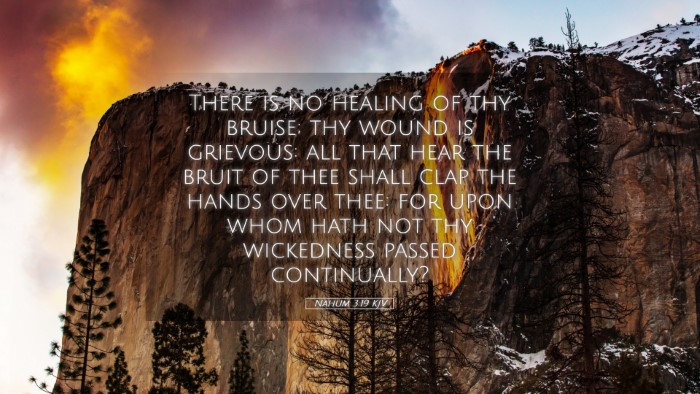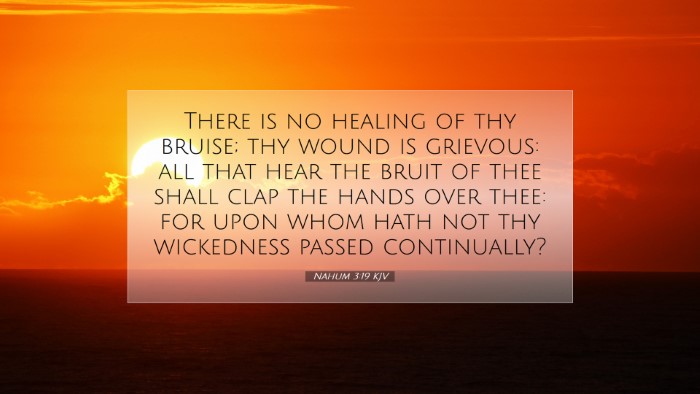Old Testament
Genesis Exodus Leviticus Numbers Deuteronomy Joshua Judges Ruth 1 Samuel 2 Samuel 1 Kings 2 Kings 1 Chronicles 2 Chronicles Ezra Nehemiah Esther Job Psalms Proverbs Ecclesiastes Song of Solomon Isaiah Jeremiah Lamentations Ezekiel Daniel Hosea Joel Amos Obadiah Jonah Micah Nahum Habakkuk Zephaniah Haggai Zechariah MalachiNahum 3:19
Nahum 3:19 KJV
There is no healing of thy bruise; thy wound is grievous: all that hear the bruit of thee shall clap the hands over thee: for upon whom hath not thy wickedness passed continually?
Nahum 3:19 Bible Commentary
Commentary on Nahum 3:19
Nahum 3:19 states, "There is no healing of thy bruise; thy wound is grievous: all that hear the bruit of thee shall clap the hands over thee: for upon whom hath not thy wickedness passed continually."
Introduction
The book of Nahum is often viewed through the lens of its prophetic judgment against Nineveh, the capital of Assyria. Nahum, whose name means "comfort," delivers a message of impending doom to a city known for its cruelty and wickedness. This verse encapsulates the finality of divine judgment while also offering profound insights into God’s justice and the fate of nations.
Exegesis of the Text
Nahum's proclamation carries weight in its vivid imagery and severe warning. As this verse suggests, Nineveh's condition is beyond repair; its wounds are noted as grievous, underscoring both physical and moral devastation. The phrase "no healing of thy bruise" conveys a sense of despair. It indicates that the sins of Nineveh have reached a point where restoration is not possible. This notion of irredeemable sin is also found in other prophetic texts.
Commentary Insights
- Matthew Henry points out that the grievous wound of Nineveh symbolizes their inescapable judgment. He remarks that as the wound is permanent, so is their fate. The inability to heal signifies a divine decree against a city immersed in iniquity. Henry emphasizes the consequences of unrepentant sin and how nations that defy God invite His judgment.
- Albert Barnes illustrates the communal response to Nineveh’s fall. He notes that as "all that hear" witness the calamity, their reaction is to “clap the hands”, indicating a sense of triumph over the oppressor. This act highlights the justice that God’s people feel when evil is dealt with. Barnes also reflects on the motif of God's justice throughout scripture, showing that no evil goes unpunished, and this narrative serves to comfort the oppressed.
- Adam Clarke provides further insight into the nature of sin and its effects on nations. He discusses the “bruit” (or report) of Nineveh’s downfall as a means of illustrating its wickedness. Clarke reminds us that the legacy of sin does not merely end with the individual but often drags entire nations into destruction. His comments encourage a reflective attitude regarding the moral state of contemporary nations, urging a deep awareness of national conduct.
Theological Implications
The passage serves to remind believers of the serious nature of sin and the accountability that nations have before God. In a contemporary context, the verse beckons leaders and individuals to reflect on their ethical standing and the broader implications of their actions. The idea that “wickedness has passed continually” serves as a stark warning for persistent defiance against divine laws.
From a theological standpoint, this passage reinforces the concept of God’s sovereignty in administering justice. The culmination of judgment exemplified in Nahum 3:19 can be seen as a foretaste of the ultimate justice that will be revealed in eschatological settings. The prophecy holds both a warning and hope; while it portrays the demise of a wicked nation, it also offers assurance to the faithful that God has not forgotten them.
Conclusion
Nahum 3:19 ultimately serves as a poignant reminder of the consequences of sin and the unwavering nature of God’s justice. For pastors, students, and scholars of theology, it challenges them to consider the narrative of their environments: Are they perpetuating goodness, or are they, in any aspect, reflective of Nineveh? Moreover, it beckons a continued examination of God’s character—one that is deeply invested in justice and morality.
As we engage with such texts, we are called not only to understand the history and implications of God’s word but also to apply these lessons to our ministries, personal lives, and society. In doing so, we can better embody the call to holiness and righteousness that God desires from His people.


